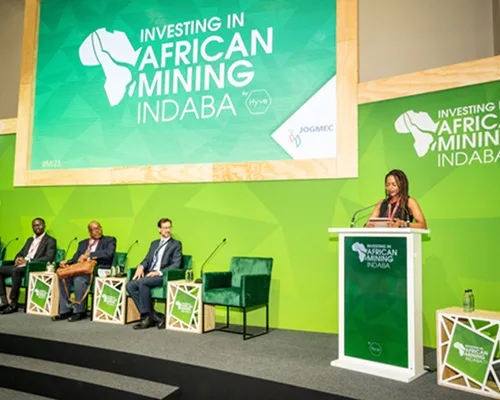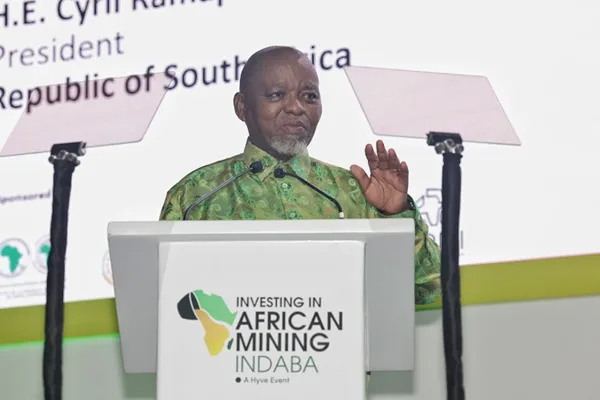South Africa Advocates Higher Local Beneficiation at African Mining Indaba 2025
Delivering the keynote address on behalf of President Ramaphosa at the opening session of the African Mining Indaba 2025 (#AMI2025) in Cape Town, South African Minister of Mineral and Petroleum Resources Gwede Mantashe underscored that Africa must unlock the benefits of beneficiation in order to improve the lives of its people.
“Africa is the world’s richest mining jurisdiction. We should internalize that and use it to our advantage. We have something that the world wants. We are not beggars! We must use that endowment for our own benefit as a continent.”
South African Minister of Mineral and Petroleum Resources Gwede Mantashe
With regards to funding being withheld by USA in response to certain ‘disadvantageous policies’, Minister Mantashe retorted: “They want to withhold funding, but they still want our minerals. Let’s withhold minerals, then. Africa needs to assert its advantage and take charge of the growing demand.”
Africa is encountering an unprecedented and tremendous opportunity as the demand for #CriticalMinerals skyrockets with the global drive towards new clean energy. Indeed, Africa is rich in chromium, copper, lithium, gold, manganese, nickel, vanadium, platinum and several rare-earth elements (#REE) that are powering the future of the world. In line with the increasing importance of these minerals, the theme of the 31st African Mining Indaba was “Future-proofing African Mining.”
Minister Mantashe identified affordable and accessible power as a potential bottleneck for Local Value Addition (#LVA) of minerals and ores. In that respect, South Africa intends to put to good use its huge reserves of coal as part of the Just Energy Transition (#JET). From South Africa’s perspective, coal is a critical mineral, and in economic terms, coal is only behind the platinum group of metals (#PGM), but ahead of gold.
South Africa has seen a decline in gold mining but an increase in the extraction of #CriticalMinerals. It is worth highlighting that South Africa produces 81% of rhodium, 73% of PGM, and 40% of chromium globally.
Unfortunately, South Africa has not been able to control the global market for minerals despite being a significant source. For instance, China controls the global market for chromium, which in fact originates from Africa. In a well-scripted playbook, China first stockpiles #CriticalMinerals, then dumps it on the market to drive down prices, before scooping corresponding mining assets at bargain basement prices.
To leverage its mining resources, Africa must thus speak as one man and with one voice. Mantashe highlighted the case of the EU: whenever an Africa country tries to negotiate with a western European state, the EU comes into play to present a common front.
More and more African leaders are of the opinion that the time is ripe for the creation a cartel for certain #CriticalMinerals. The model would be analogous to the Organization of the Petroleum Exporting Countries (OPEC), which greatly contributed to the meteoric rise of oil-rich Middle-Eastern economies.

Mantashe also encouraged more companies to invest in the African mining sector, with an attractive return on investment (#ROI), At the same time, he expressed the wish for mining companies to contribute more to their local communities as part of their #CSR or #ESG programs.
Mining is a hazardous industry and South Africa has initiated a #ZeroHarm program to reduce fatalities in the sector. In 2024, South Africa registered 42 deaths, down from 49 in 2022 and the aim is bring down the figure to as low a level as possible.
Before concluding, Mantashe alluded that #CriticalMinerals and its #LocalBeneficiation are likely to be a key topics of the upcoming #G20 Summit which is scheduled to take place in Johannesburg toward the end of year. He exhorted fellow Africans to work together in order to move policies in the direction of ‘The Africa We Want.’

